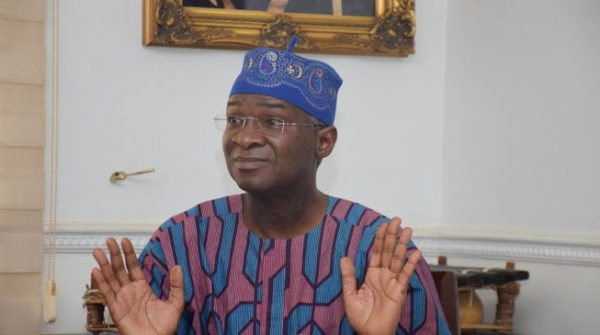The Federal Government (FG) has spent over N124billion to provide mass and affordable housing in four years, yet the country is still grappling with 22 million housing deficit.
Between 2015 and 2019, the FG has expended the said sum, in a bid to provide affordable housing for Nigerians, hence reduce the deficits.
For instance, before the commencement of the FG National Housing Programme in 2017 which is expected to cover 33 states, over N35.6billion was totally allocated for various housing projects between 2015 and 2016.
According to the 2015 approved budget of the Ministry of Lands, Housing and Urban Development, from the total allocation of N7.3billion, a sum of N20million were set aside for the; “Establishment of 150 No. Fully serviced residential plots per site in each state of the federation and FCT.”
Meanwhile, in the 2016 approved budget of the Ministry of Power, Works and Housing, over N35billion was earmarked for the, “construction of 1,973 blocks of 7,068 housing units in the six geo-political zones and the FCT.”
In 2017, the FG kick-started the National Housing Programme (NHP), as well as the Mass Housing Projects. While private sectors executed the NHP after State Governors provided land allocation for the project, the Mass Housing was implemented by the Federal Housing Authority (FHA), Abuja, as reflected in the budget.
As such, between 2017 and 2019, the budgetary allocations for these programmes, NHP and Mass Housing were to the tune of N88.5billion.
In 2017, the FG allocated exactly N28billion and N5billion for its national housing programme and the FHA mass housing projects respectively, out of a total budgetary allocation of N489.63billion.
Also, in 2018, while N26.65billion was earmarked for the NHP, N3.8billion was approved for the FHA mass housing project to make a total of N30.53billion from the approved capital budget of N683billion.
Similarly in 2019, from the approved capital allocation of N394.91billion of the Ministry of Power, Works and Housing, the FG only committed an approximated N25billion to the national housing programme.
The Minister of Works and Housing, Babatunde Fashola had in 2017 said that the National Housing Programme was a new housing policy conceived by the present administration with the aim of achieving acceptability and affordability by Nigerians.
He argued that the Housing policy will provide affordable housing for Nigerians in both private and public sectors.
He said the pilot scheme will see the construction of about 2,000 Housing Units in 33 States of the country with targeted beneficiaries within an income bracket of grade level 8 – 14 in both private and public sectors.
Unfortunately, despite the huge sums expended in the sector over a 4-year period, the country is still battling with how to address the over 22million housing deficits in the country.
This was further confirmed by the Managing Director of the Federal Mortgage Bank of Nigeria (FMBN), Ahmed Dangiwa who added that the bulk of this is in urban areas — Lagos, Port Harcourt and Abuja.
Also, a quick look at the 2020 proposed Budget for the Ministry of Works and Housing, showed that out of an allocation of N287.2billion, a sum of N17.5billion was set aside for the NHP.

An analysis of the allocations to housing projects from 2017 to 2019 revealed a steady decrease. For instance, in 2018, the allocation to the national housing programme decreased by N1.3billion while same was noticed in 2019 and 2020 proposed budget.
Apart from budgetary allocations, the country also secured a World Bank$300million loan for Housing Finance Project to increase access to housing finance by deepening primary and secondary mortgage markets in the country.
Meanwhile, the United Nations(UN) recently reported that Nigeria’s housing sector is in crisis due to various factors contributing to the non-availability of affordable housing and increase in slums across the country.
The UN Special Rapporteur on adequate housing, Ms Leilani Farha made the disclosure while presenting her preliminary findings on adequate housing at the end of a 10-day long fact-finding in Abuja.
She said: “Nigeria’s housing sector is in a complete crisis. There is no current National housing action plan or strategy. Coordination and communication between Federal and state governments seem lacking.
“There are few government-led housing programmes that the most impoverished can access. There are scant government housing subsidies to speak of. Informal settlements are ballooning where conditions are inhumane and perhaps the most severe I have seen worldwide.”
Source: tribuneonlineng





